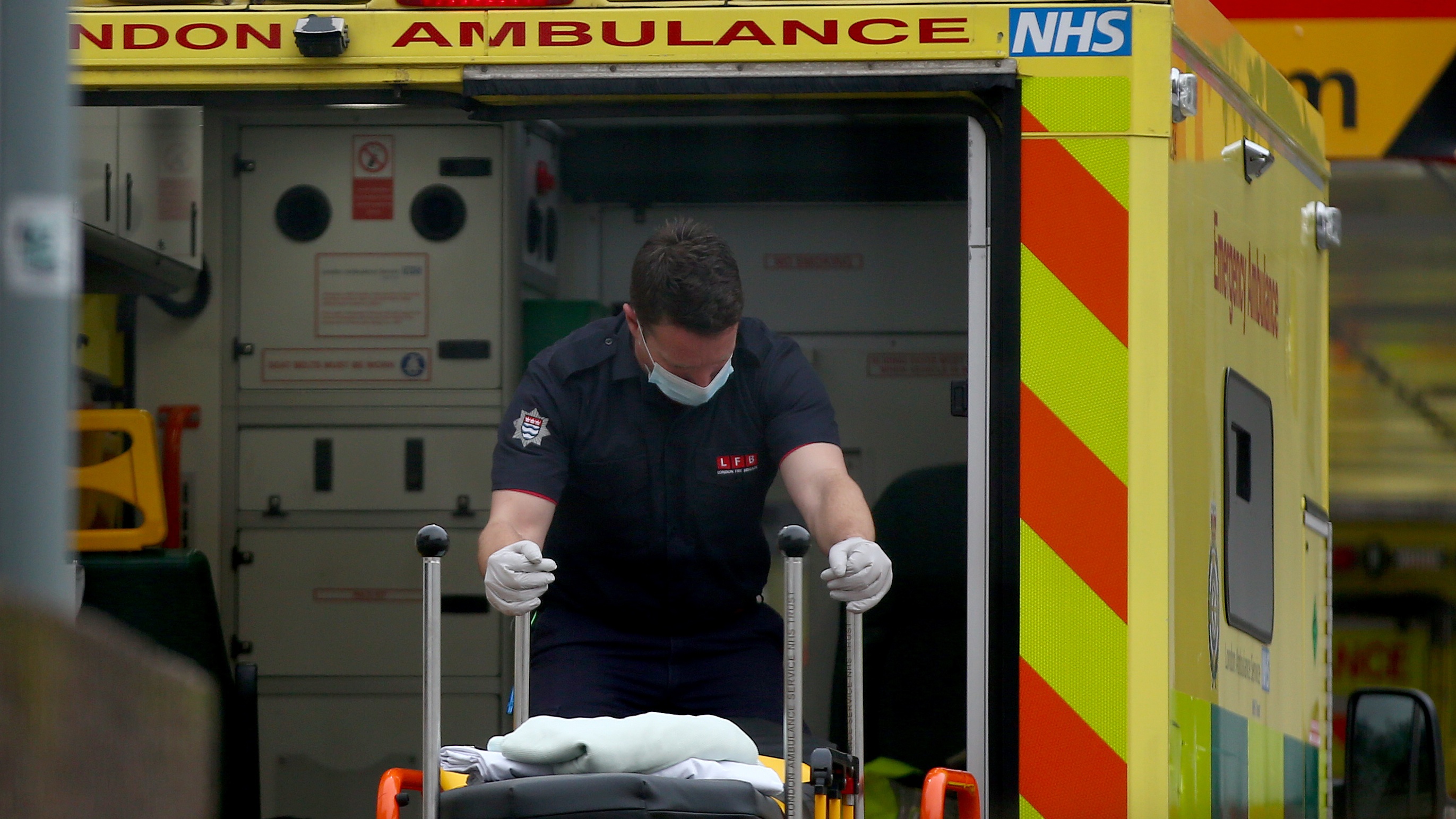Four key takeaways from the study that dented lockdown lifting plans
Researchers find level of infections are stable or rising slightly

A free daily email with the biggest news stories of the day – and the best features from TheWeek.com
You are now subscribed
Your newsletter sign-up was successful
Scientists at Imperial College London (ICL) have found “no strong evidence” that high Covid-19 infection rates fell during the first ten days of the latest national lockdown.
Just days after government data suggested that shutdown measures had caused a dip in infections, a study by ICL suggests that new infections are now stable, and possibly even growing slightly in parts of the country.
The findings come just a day after Boris Johnson was revealed to be privately planning for the end of the current shutdown, with Easter mooted as the potential end date for the measures.
The Week
Escape your echo chamber. Get the facts behind the news, plus analysis from multiple perspectives.

Sign up for The Week's Free Newsletters
From our morning news briefing to a weekly Good News Newsletter, get the best of The Week delivered directly to your inbox.
From our morning news briefing to a weekly Good News Newsletter, get the best of The Week delivered directly to your inbox.
1. Infections on the up
The ICL team took swab tests from more than 142,000 people across England between 6 and 15 January. They found that infections were up by 50% on early December, with one in 63 people infected.
A total of 1.58% of the population had the virus during early January, up from 0.91% in December. This suggests that already stretched hospitals will see admissions “keep increasing for several weeks”, the Daily Mail says.
2. Regional variations
Researchers also found that infection rates vary widely across the country. Cases have plateaued in London and the east of England, the study says, but were found to be falling more rapidly in the south west, where the R number is estimated to be 0.37. Cases are rising in Yorkshire and the East Midlands.
Despite the rate of infection stabilising in London, levels of the virus are still highest in the capital, with 2.8% of respondents testing positive. Infections are lowest in the south west, with 0.53% testing positive.
A free daily email with the biggest news stories of the day – and the best features from TheWeek.com
3. Accurate picture
The researchers believe their data may be ahead of Office for National Statistics figures because their survey tests people routinely rather than picking up infections after people have developed symptoms and gone through the process of getting a test. However, the ICL team also admits there is some uncertainty in their data amid a “fast-changing situation”.
4. Tougher measures
BBC science correspondent Pallab Ghosh points out that the results are “just one set of figures over a short number of days” so a “more optimistic picture” could emerge when a fuller report is published next week.
However, he adds, “there is no getting away from the fact that ministers will be disappointed not to have seen a fall at this stage” and “unless things change, even tougher measures will have to be considered”.
Chas Newkey-Burden has been part of The Week Digital team for more than a decade and a journalist for 25 years, starting out on the irreverent football weekly 90 Minutes, before moving to lifestyle magazines Loaded and Attitude. He was a columnist for The Big Issue and landed a world exclusive with David Beckham that became the weekly magazine’s bestselling issue. He now writes regularly for The Guardian, The Telegraph, The Independent, Metro, FourFourTwo and the i new site. He is also the author of a number of non-fiction books.
-
 Where to go for the 2027 total solar eclipse
Where to go for the 2027 total solar eclipseThe Week Recommends Look to the skies in Egypt, Spain and Morocco
-
 The end of mass-market paperbacks
The end of mass-market paperbacksUnder the Radar The diminutive cheap books are phasing out of existence
-
 Political cartoons for February 22
Political cartoons for February 22Cartoons Sunday’s political cartoons include Black history month, bloodsuckers, and more
-
 A Nipah virus outbreak in India has brought back Covid-era surveillance
A Nipah virus outbreak in India has brought back Covid-era surveillanceUnder the radar The disease can spread through animals and humans
-
 Covid-19 mRNA vaccines could help fight cancer
Covid-19 mRNA vaccines could help fight cancerUnder the radar They boost the immune system
-
 The new Stratus Covid strain – and why it’s on the rise
The new Stratus Covid strain – and why it’s on the riseThe Explainer ‘No evidence’ new variant is more dangerous or that vaccines won’t work against it, say UK health experts
-
 RFK Jr. vaccine panel advises restricting MMRV shot
RFK Jr. vaccine panel advises restricting MMRV shotSpeed Read The committee voted to restrict access to a childhood vaccine against chickenpox
-
 RFK Jr. scraps Covid shots for pregnant women, kids
RFK Jr. scraps Covid shots for pregnant women, kidsSpeed Read The Health Secretary announced a policy change without informing CDC officials
-
 New FDA chiefs limit Covid-19 shots to elderly, sick
New FDA chiefs limit Covid-19 shots to elderly, sickspeed read The FDA set stricter approval standards for booster shots
-
 RFK Jr.: A new plan for sabotaging vaccines
RFK Jr.: A new plan for sabotaging vaccinesFeature The Health Secretary announced changes to vaccine testing and asks Americans to 'do your own research'
-
 Five years on: How Covid changed everything
Five years on: How Covid changed everythingFeature We seem to have collectively forgotten Covid’s horrors, but they have completely reshaped politics